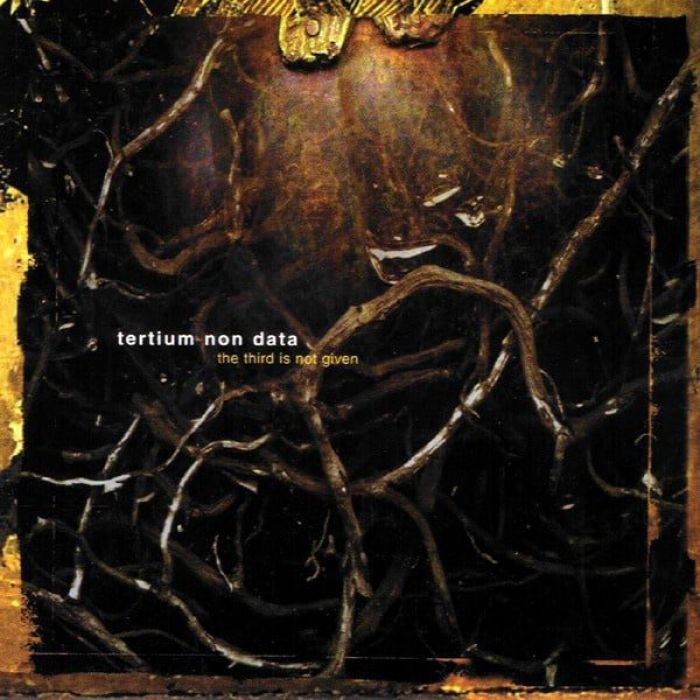The Third Is Not Given by Tertium Non Data (Review)

Tertium Non Data consists of Brett Smith (Caul) and John Bergin (Trust/Obey). Of the two, I’m only familiar with Smith’s work under the moniker Caul. Caul’s music is often categorized as dark-ambient, but it’s much more diverse than that. On Reliquary and Light From Many Lamps, Smith took the deep drones and textures of dark-ambience and combined them with Middle-Eastern and Orthodox influences, creating music that’s as sacred and haunting as it is oppressive.
As a whole, Tertium Non Data is much less intimate and personal than Caul’s music. Take Caul’s music and apply a more liberal dose of “industrial/experimental/etc.” and you come close to the music on this disc. However, the very thing I enjoyed so much about Caul’s music was that, for an artist often lumped into the “ambient” genre, a genre as amorphous as the music itself, Caul’s music was very melodic and structured.
Unfortunately, a good deal of The Third Is Not Given comes across as that, falling squarely in the “experimental/ambient-industrial” genre. To be sure, the sounds are interesting, but I’m rarely captivated by them as much as I am with Caul’s music. At times, I found myself struggling to get through some of the music, waiting for a particular track to end, as in the overlong “Nidhogg.” Sounds come and ago, rumbles and clanks sound off in the foggy distance, and all of the “haunted factory/abandoned monastery” noises are there, but nothing develops. Random noises may be fascinating, but they don’t make for a compelling or fulfilling listen in my book.
I don’t want to say that the entire disc just sounds like two guys sitting around and noodling with a bunch of synthesizers, samples, and tape loops, nor do I want to disparage the talents of Smith (whose Caul releases I adore) and Bergin. At points, the songs do coalesce and the elements begin to fall into place, but the ultimate payoff just never seems to be enough. And the strongest material on here is definitely the songs where Caul’s “sound” comes through the most.
“Goddun” sounds reminiscent of Robert Rich’s Propagation, combining an eerie ethnic sound to distant drones and chants from the depths of alien rainforests. “Lost Enchantments of the Flesh” takes the expansive ambience of Caul’s later releases and funnels it through the spirit of a Navajo reservation, with tribal percussion and a warbling chant. And “Remnant” sounds like it came right off of Light From Many Lamps — a solemn, graceful melody plays out, surrounded by a synthetic choir and fractured chimes and bells.